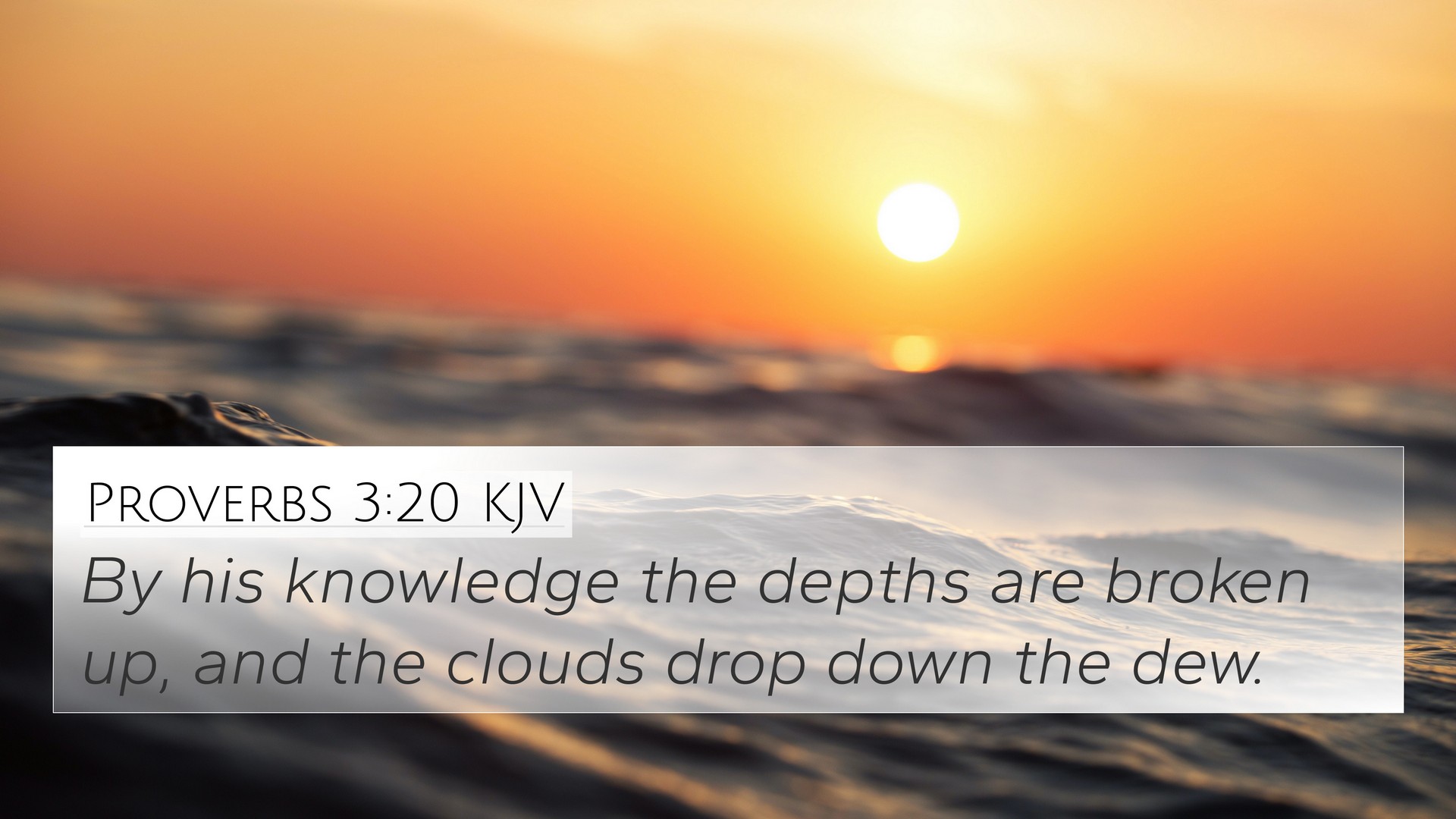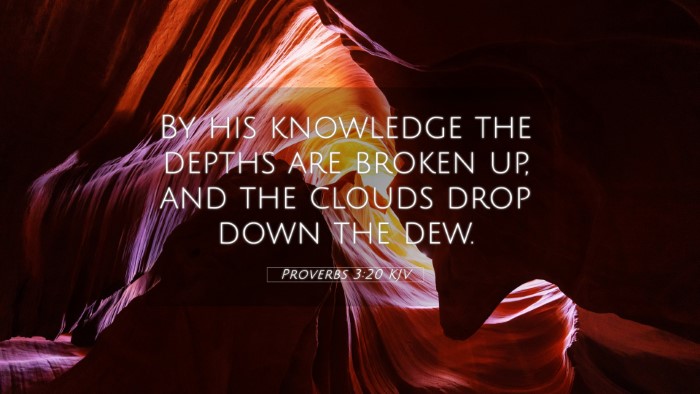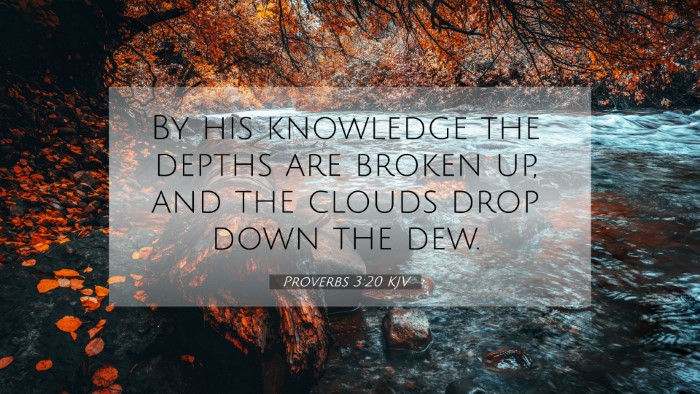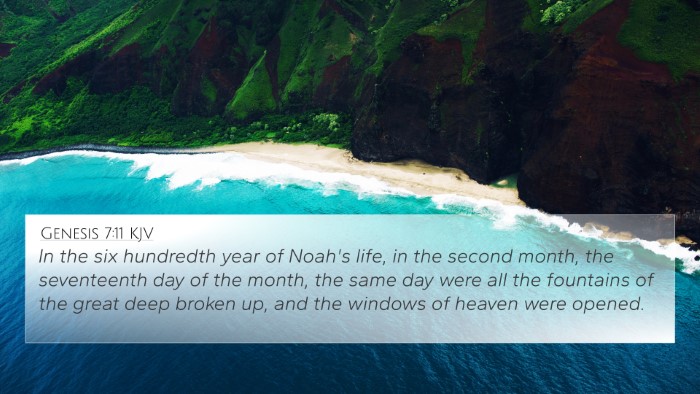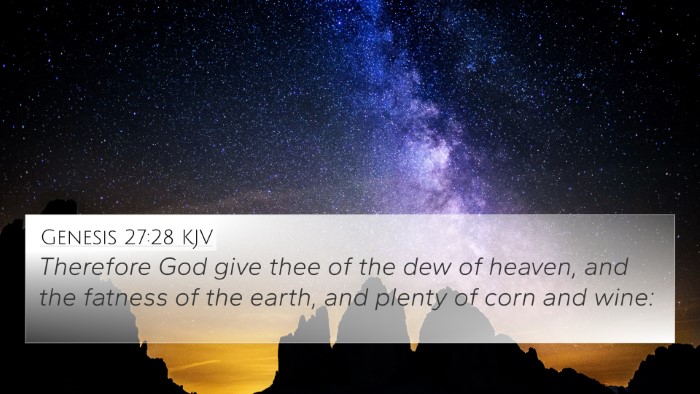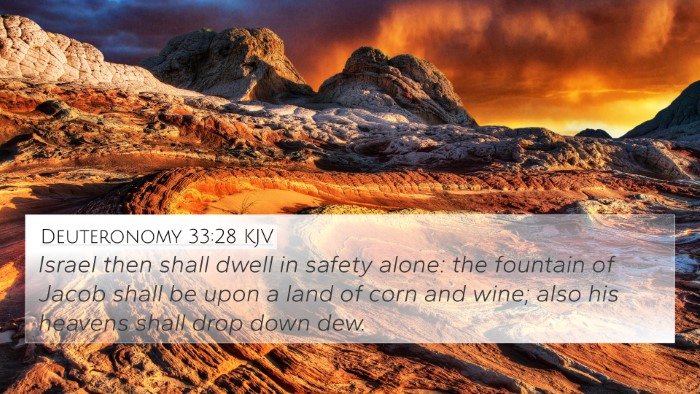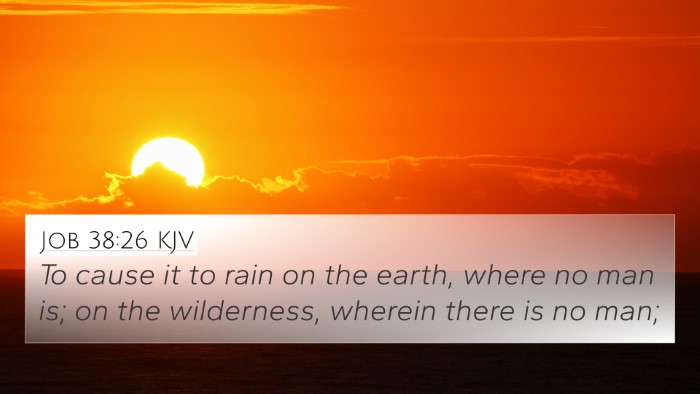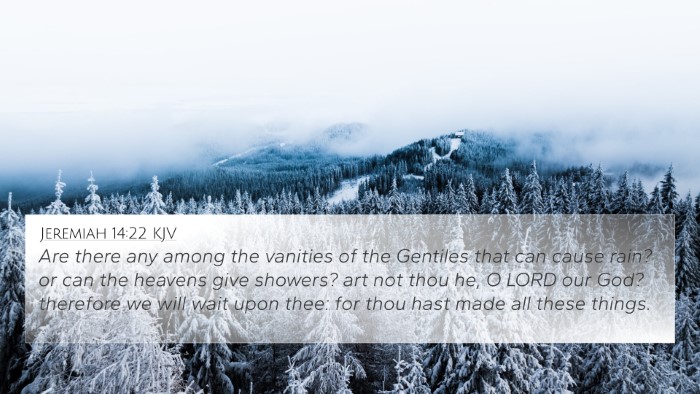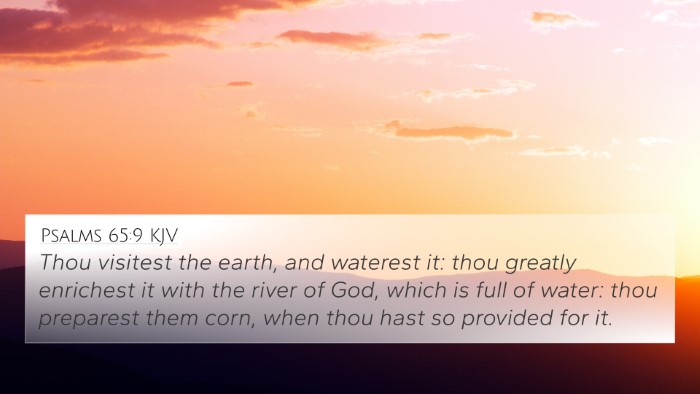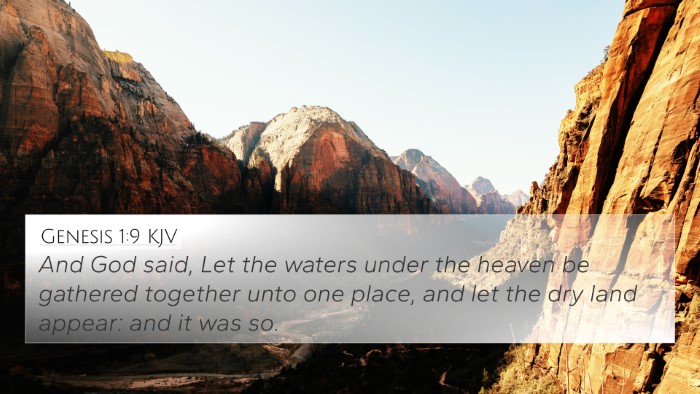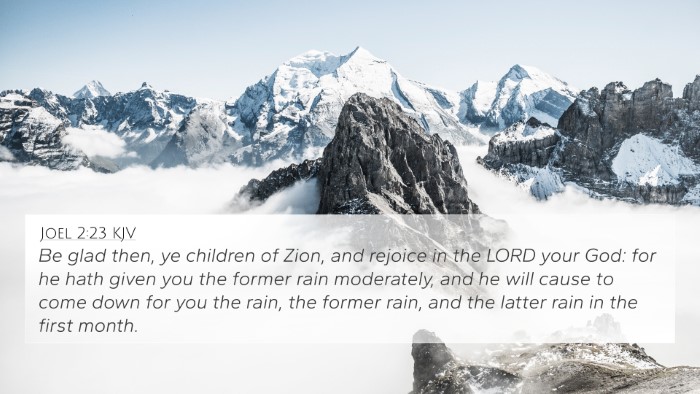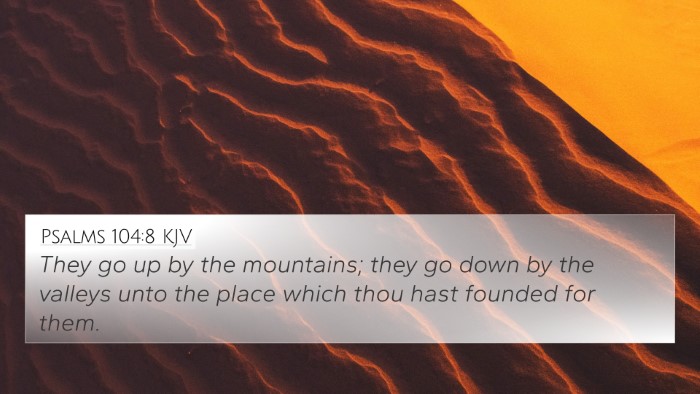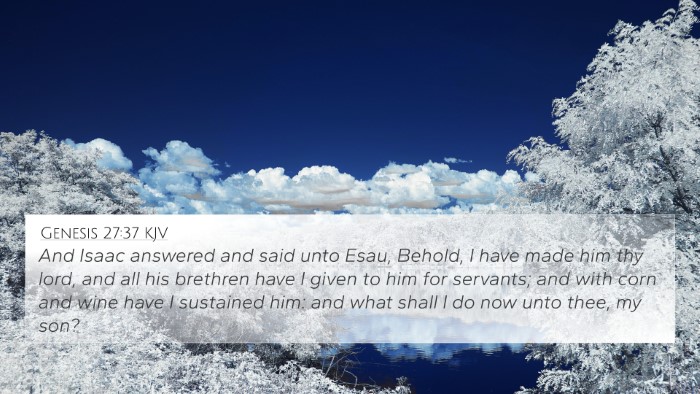Understanding Proverbs 3:20
Proverbs 3:20 states: "By his knowledge the depths are broken up, and the clouds drop down the dew." This verse emphasizes the profound impact of divine knowledge on both nature and human life.
Interpretation and Meaning
This verse indicates that the wisdom and knowledge of God have a direct influence on both the natural world and the lives of individuals. It suggests a connection between divine understanding and the physical phenomena we observe in our environment.
Insights from Public Domain Commentaries
- Matthew Henry's Commentary:
Henry notes that this verse illustrates the power of God's wisdom, which governs the universe. The mention of "depths" relates to the oceans, and "clouds" signifies precipitation. God's understanding orchestrates the cycles of nature.
- Albert Barnes' Notes:
Barnes expands on the idea that knowledge from God is responsible for the regularity of natural processes, which are essential for life. He points out that dew is a life-giving element, and signifies the gentle touch of God's provisions.
- Adam Clarke's Commentary:
Clarke emphasizes the importance of divine providence, arguing that it is only through God's knowledge that creation functions as intended. The "breaking up" of depths suggests a release of blessings, while dew symbolizes God's grace.
Bible Verse Cross-References
This verse echoes themes found in other scriptures, creating a tapestry of biblical knowledge. Here are some related verses:
- Job 36:27-28: "For he draws up the drops of water... which distill as rain upon the world." This passage parallels the heavenly influence described in Proverbs 3:20, linking God's power to natural water cycles.
- Psalms 104:13: "He waters the hills from his chambers: the earth is satisfied with the fruit of thy works." This verse also recognizes the relationship between divine action and natural phenomena, much like in Proverbs 3:20.
- Isaiah 55:10-11: "For as the rain comes down, and the snow from heaven... so shall my word be that goes forth from my mouth." The metaphor of rain directly connects divine wisdom to earthly effects.
- James 1:17: "Every good gift and every perfect gift is from above, coming down from the Father." This verse reinforces the idea that blessings flow from God's knowledge and character.
- 1 Corinthians 3:6-7: "I have planted, Apollos watered; but God gave the increase." The verses highlight the necessity of divine intervention in growth, akin to how knowledge and nature work together in Proverbs 3:20.
- Colossians 1:17: "And he is before all things, and by him all things consist." This reflects the sustaining power of Christ, linking back to the themes of knowledge and natural occurrence found in Proverbs 3:20.
- Hebrews 1:3: "Upholding all things by the word of his power." This verse ties divine knowledge directly to the maintenance of creation, echoing the sentiments of Proverbs 3:20.
Thematic Connections
The core themes of Proverbs 3:20 can also be found throughout the Bible, encouraging us to recognize the connections between different scriptures:
- Divine Knowledge: The necessity of acknowledging and trusting God’s wisdom is prominent in various verses, guiding believers in their daily lives.
- Nature's Response to God: Natural elements respond to God’s commands, revealing His authority and the intricate relationship between divine knowledge and earthly phenomena.
- Provision and Blessings: Just as dew is essential for life, the provision of God through His wisdom facilitates growth and sustenance.
Tools for Bible Cross-Referencing
To enhance your understanding and exploration of connections between Bible verses like Proverbs 3:20, consider utilizing the following tools:
- Bible Concordance: A concordance can help you locate specific verses and their themes quickly.
- Bible Cross-Reference Guide: Use these guides to find relevant verses based on topics or keywords.
- Cross-Reference Bible Study: Engage in methods that allow you to study how different scriptures relate to one another.
- Bible Reference Resources: Explore various resources available that focus on biblical texts and their inter-connections.
Conclusion
Overall, Proverbs 3:20 invites us to reflect on the intricate relationship between God's knowledge and the natural world. By understanding and cross-referencing this verse with others, we glean deeper insights into the themes of divine wisdom, provision, and the interconnectedness of God’s creation. Recognizing these connections not only enriches our comprehension of Scripture but also enhances our spiritual journey.
